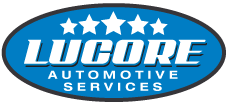Vehicle Maintenance
Keeping Cars Safe
The Importance of Vehicle Maintenance
Tips for Better Mileage
– Replace your air filter
– Keep your tires properly inflated
– Use the recommended grade of oil
For most people, a vehicle is a major investment, second only to buying a house. A National Institute for Automotive Service Excellence (ASE) study found that at least half of consumers neglect routine maintenance, with young people being the least likely to keep up with service schedules. Almost two-thirds of automotive technicians believe that consumers can take care of their vehicle’s maintenance and repair needs for less than $500 annually. Considering the average cost and complexity of a new vehicle, you may be penny-wise and dollar-foolish if you neglect routine maintenance.
What do we mean by “vehicle maintenance”?
Vehicle maintenance means keeping all the systems and features functioning as closely as possible to the manufacturer’s original design intentions. Routine maintenance should be an ongoing process that begins when the vehicle is new, because any machine that receives use will also accumulate wear. Proactively tending to your vehicle’s maintenance needs is likely to help your vehicle start, run, and stop as the manufacturer intended, so you get the maximum amount of performance, reliability, and service life. Periodic inspections of the vehicle’s systems are the easiest way to monitor its health. Here are ten of the most common systems and components that should be regularly maintained on your vehicle:
Oil and Oil Filters
Having your oil and oil filter changed, at least as often as recommended by the manufacturer, is likely to generate the single biggest return on your routine-maintenance investment. Replacing the dirty oil and filter will help protect the internal parts of the engine from premature wear. It’s important to use the recommended grade of oil for your vehicle for the best protection and fuel mileage. See your vehicle owner’s manual for the recommended oil change interval, or follow the oil-life monitoring system, if equipped.
Air Filters
A dirty air filter prevents the engine from breathing properly, which can decrease fuel mileage and performance and make the engine work harder than it needs to. Let your vehicle breathe! Change the air filter once a year or when recommended in your owner’s manual. Change it more often if you drive in dirty or dusty conditions.
If your vehicle is equipped with a cabin air filter, change that too. A dirty cabin air filter reduces the airflow through the vehicle’s ventilation system. Cabin air filters help keep pollens, fumes, smoke, and other materials from reaching the inside of a vehicle. See the owner’s manual to determine if your vehicle is equipped with a cabin air filter.
Brakes
Often, brakes have wear indicators that produce noise when it’s time to change the pads. Or your brakes may “feel” different when you press on them. If you think there may be a problem with your vehicle’s brakes, have them inspected at an Independent Service Center that features quality ACDelco parts. When it’s time to replace the brakes, ask for ACDelco DuraStop Brakes, which are D3EA-certified to federal safety standards and offer a limited lifetime warranty.
Charging/Battery
Extreme heat and cold are hard on automotive batteries. If your vehicle is a few years old, have the battery and charging system tested to be sure that your battery has the power to start your vehicle and that your alternator is recharging the battery as it should. Interstate Batteries have some of the best warranties in the industry, and our AC Delco alternators are 100% performance- and reliability-tested to help provide you with a quality, proven product.
Belts
Drive belts are essential for keeping your vehicle’s electrical (alternator), engine cooling (water pump), and air-conditioning systems running. Having them inspected periodically and replaced when necessary means you’re less likely to experience a broken belt and the resulting vehicle breakdown.
Cooling
A cooling system that is clogged or low on fluid can cause serious damage to the engine and other components. Get into the habit of checking the fluid level regularly, and have the fluid changed or flushed when recommended.
Wipers
Don’t wait for a rainy day to discover that your windshield wipers are worn and need replacement. Worn wipers can hinder visibility in rainy or snowy conditions. Bosch Blades have a curved design that conforms to the shape of your windshield and provides constant pressure for a smooth, uniform wipe.
Ignition
Though many spark plugs are designed to last 100,000 miles, they can still get dirty or fail prematurely. Ignition wires lose insulating ability over time, and the connection to the plug or ignition coil can degrade as well. Having your service technician regularly inspect your ignition system can help you avoid conditions that may result in poor performance or reduced fuel economy.
Shocks/Struts
The suspension system affects your vehicle’s steering, braking power, and stability, so it’s important to have these functions inspected regularly and to replace parts when they become worn – and dangerous! Monroe and Gabriel have shocks and struts that fit your style and budget and that feature a competitive, limited lifetime warranty. It’s also important to have other chassis items, such as tie-rod ends, control arms, and ball joints, checked periodically.
Transmission
Automatic transmissions have become more sophisticated with additional gears and computerized electronic controls and are designed to work with the engine controls for best operation. Have the transmission inspected and serviced as recommended in the owner’s manual.
Also, be sure to use the correct fluid when “topping off” or changing the fluid & filter. We never reccomend fluid modifiers in transmissions. They have been known to cause shutters and bump shifts that can shorten the life of your transmission.
